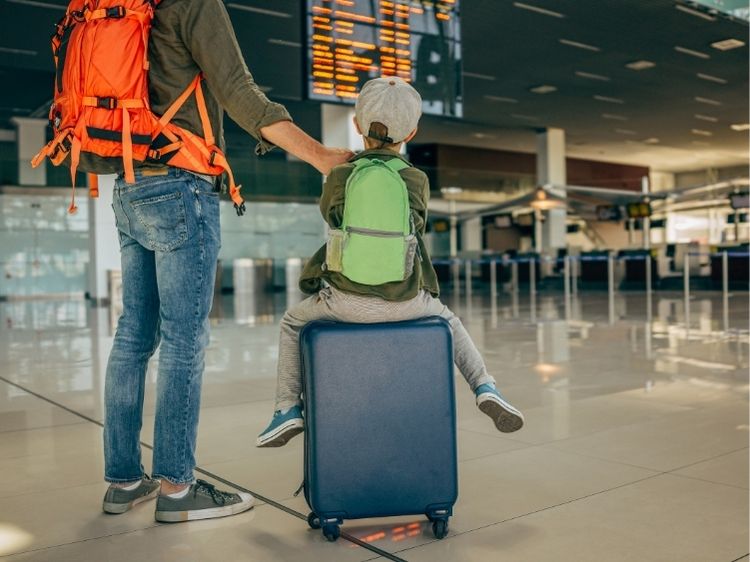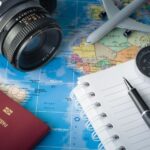Planning a tropical getaway to the Bahamas or Jamaica? It’s essential to stay informed about travel advisories before you pack your bags. While these destinations are well-loved for their breathtaking beaches and vibrant cultures, there are a few things travelers should be aware of. In this article, we’ll cover the latest travel advisories, offering tips to ensure your safety and peace of mind while you enjoy the sun and sea.
When it comes to idyllic island vacations, the Bahamas and Jamaica often top the list for travelers seeking both relaxation and adventure. However, like any travel destination, there are specific advisories in place to help ensure your trip is both enjoyable and safe. Whether you’re a seasoned traveler or planning your first visit to these Caribbean paradises, it’s important to understand the latest Bahamas Jamaica travel advisory updates. So, let’s dive in and explore what you need to know.
Why Pay Attention to Travel Advisories?
Travel advisories aren’t just formalities; they offer critical insights into potential risks and hazards in specific regions. Governments and international agencies issue these advisories to inform travelers of safety concerns, such as weather disruptions, political instability, health risks, and crime. By following the advice given in travel advisories, you can plan your trip better, avoid danger, and focus on enjoying your vacation.
Key Elements of Travel Advisories
- Safety and Security: Information about crime rates, natural disasters, and regional conflicts.
- Health Warnings: Updates on disease outbreaks, vaccine requirements, and health infrastructure.
- Entry/Exit Requirements: Visa policies, passport requirements, and customs regulations.
- Local Laws and Customs: Awareness of specific laws to avoid legal troubles while abroad.
Bahamas Travel Advisory
1. General Safety and Crime
The Bahamas, a collection of over 700 islands, is famous for its crystal-clear waters, luxurious resorts, and vibrant culture. While the islands are relatively safe for tourists, there have been incidents of petty crime, particularly in Nassau, the capital. Common issues include pickpocketing, ATM fraud, and purse snatching in busy areas. Tourists are advised to avoid isolated locations, especially at night.
2. Health Considerations
In terms of health, the Bahamas has adequate medical facilities, especially in tourist hubs like Nassau and Freeport. However, for those visiting more remote islands, access to healthcare may be limited. Be sure to bring any necessary medications with you, and it’s wise to purchase travel insurance that includes health coverage. It’s also a good idea to stay updated on any potential outbreaks of mosquito-borne diseases like Zika or dengue.
3. Weather Warnings
The Bahamas is prone to hurricanes, with the season lasting from June to November. Travelers should keep a close eye on weather forecasts and government advisories during this period. It’s always a good idea to have a flexible travel plan and ensure that your accommodations have proper hurricane protocols in place.
4. Entry Requirements
For most travelers, the Bahamas offers visa-free entry for stays up to 90 days, but a valid passport is required. Make sure your passport has at least six months of validity from the date of entry. If you plan on staying longer, check with the Bahamian consulate for specific visa requirements.
Jamaica Travel Advisory
1. Safety and Security
Jamaica is a stunning island rich in culture, reggae music, and natural beauty. But it’s also important to be mindful of safety when visiting. While many areas are considered safe, especially within tourist resorts and popular towns like Montego Bay, Ocho Rios, and Negril, crime can be an issue in other areas. Gang violence, drug trafficking, and petty crimes have been reported in some parts of Kingston and Spanish Town. The government often advises tourists to avoid these areas and stick to well-trafficked tourist zones.
Safety Tips for Tourists:
- Stick to reputable, licensed taxis.
- Avoid walking alone at night or in isolated areas.
- Be cautious when withdrawing money from ATMs.
- Keep your valuables secure at all times.
2. Health and Medical Care
Healthcare in Jamaica is generally sufficient in urban areas, but rural areas may lack the same level of medical facilities. It’s advisable to carry any necessary medications, as specific prescriptions might not be readily available. Additionally, travelers should consider purchasing health insurance, which includes emergency medical evacuation if needed.
Jamaica has also had cases of mosquito-borne diseases such as dengue fever and Zika virus. It’s recommended to use insect repellent, wear long sleeves, and sleep in mosquito-proof accommodations to reduce risk.
3. Weather and Natural Disasters
Like the Bahamas, Jamaica also faces a significant hurricane threat during the hurricane season. Monitor local and international weather reports if you’re traveling between June and November. In the event of an impending storm, follow the instructions of local authorities and your hotel staff. Flooding and landslides can also occur during the rainy season, so stay informed about local conditions.
4. Entry Requirements
U.S., U.K., and Canadian citizens can enter Jamaica without a visa for up to 90 days. As with the Bahamas, ensure that your passport has at least six months of validity. Travelers should also note that Jamaica requires all arriving passengers to fill out a customs declaration form and go through a customs inspection.
How to Stay Safe: Travel Tips
When traveling to the Bahamas or Jamaica, preparation is key. Here are some general tips to help you stay safe and enjoy your vacation:
- Keep Emergency Contacts Handy: Know the location of your country’s embassy or consulate in case of an emergency.
- Use Reliable Transportation: Stick to licensed taxis and avoid accepting rides from strangers.
- Be Aware of Local Laws: Both countries have strict laws regarding drugs, including marijuana, which may be more lenient in some areas but illegal in others.
- Stay Connected: Let someone back home know your travel itinerary and check in periodically.
FAQs
1. Is it safe to travel to the Bahamas and Jamaica during the hurricane season?
Yes, but you should be extra cautious. Be prepared for potential weather disruptions and have a flexible travel plan.
2. What health precautions should I take when visiting these islands?
Ensure you have comprehensive travel insurance that covers medical emergencies. Bring necessary medications, and protect yourself from mosquito-borne diseases by using repellents.
3. What are the entry requirements for the Bahamas and Jamaica?
For short visits, most tourists can enter without a visa. Ensure your passport is valid for at least six months from your travel date.
4. Are there areas to avoid in Jamaica?
While most tourist areas are safe, it’s best to avoid certain parts of Kingston and Spanish Town due to crime rates.
5. What steps can I take to avoid crime while traveling?
Stay in well-trafficked areas, avoid displaying valuables, and use reputable transportation services.
Conclusion
The Bahamas and Jamaica are two of the most beautiful destinations in the Caribbean, but it’s essential to stay informed about the latest travel advisories to ensure a safe and enjoyable trip. By following the travel advisory guidelines, preparing for weather conditions, and staying alert to your surroundings, you can relax and enjoy everything these islands have to offer. Whether you’re sunbathing on a pristine beach in the Bahamas or soaking up the vibrant culture in Jamaica, your adventure awaits!
Authoritative Links:
- travel.state.gov
- weather.com
- cdc.gov
- bahamas.com
- visitjamaica.com





